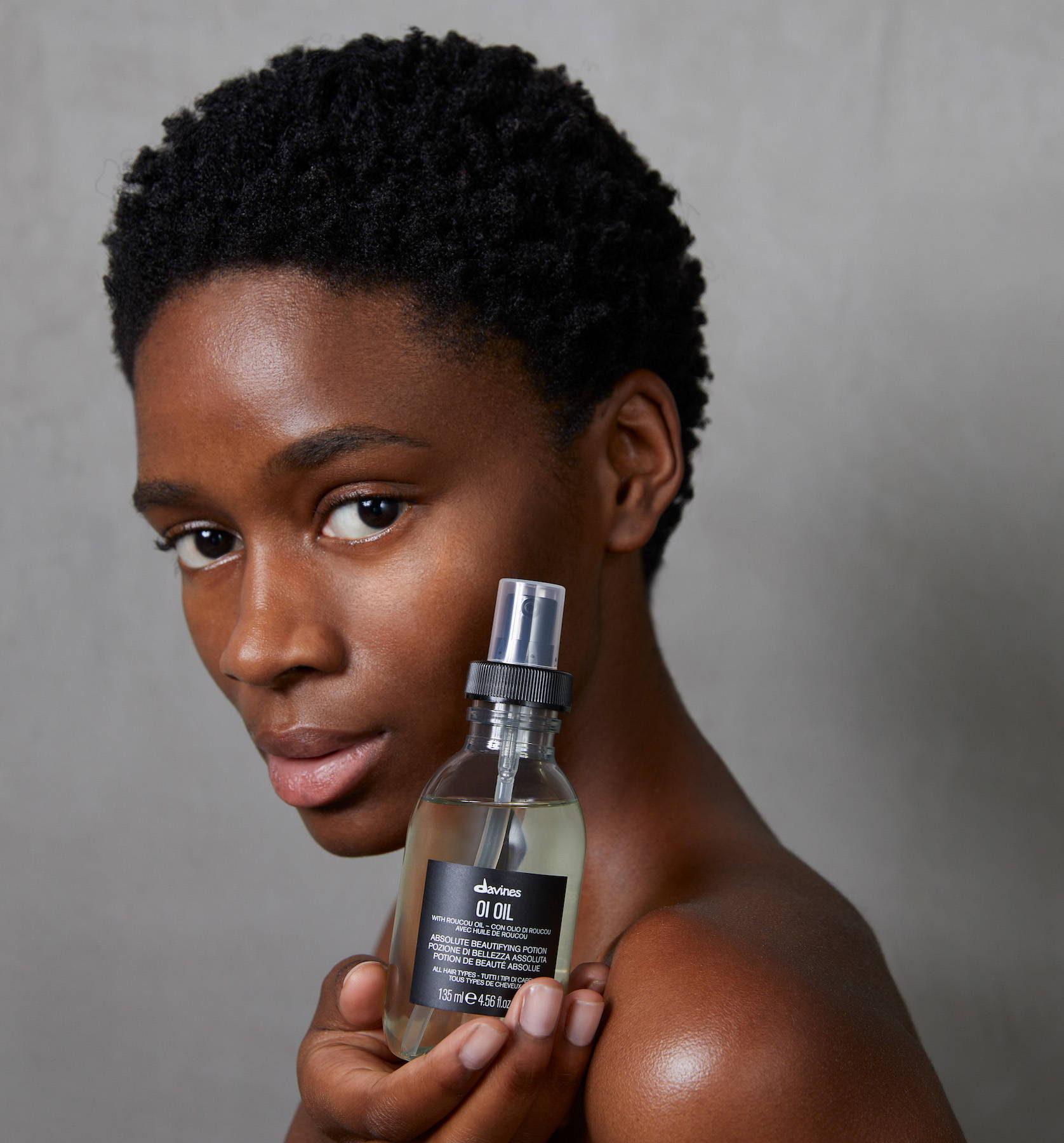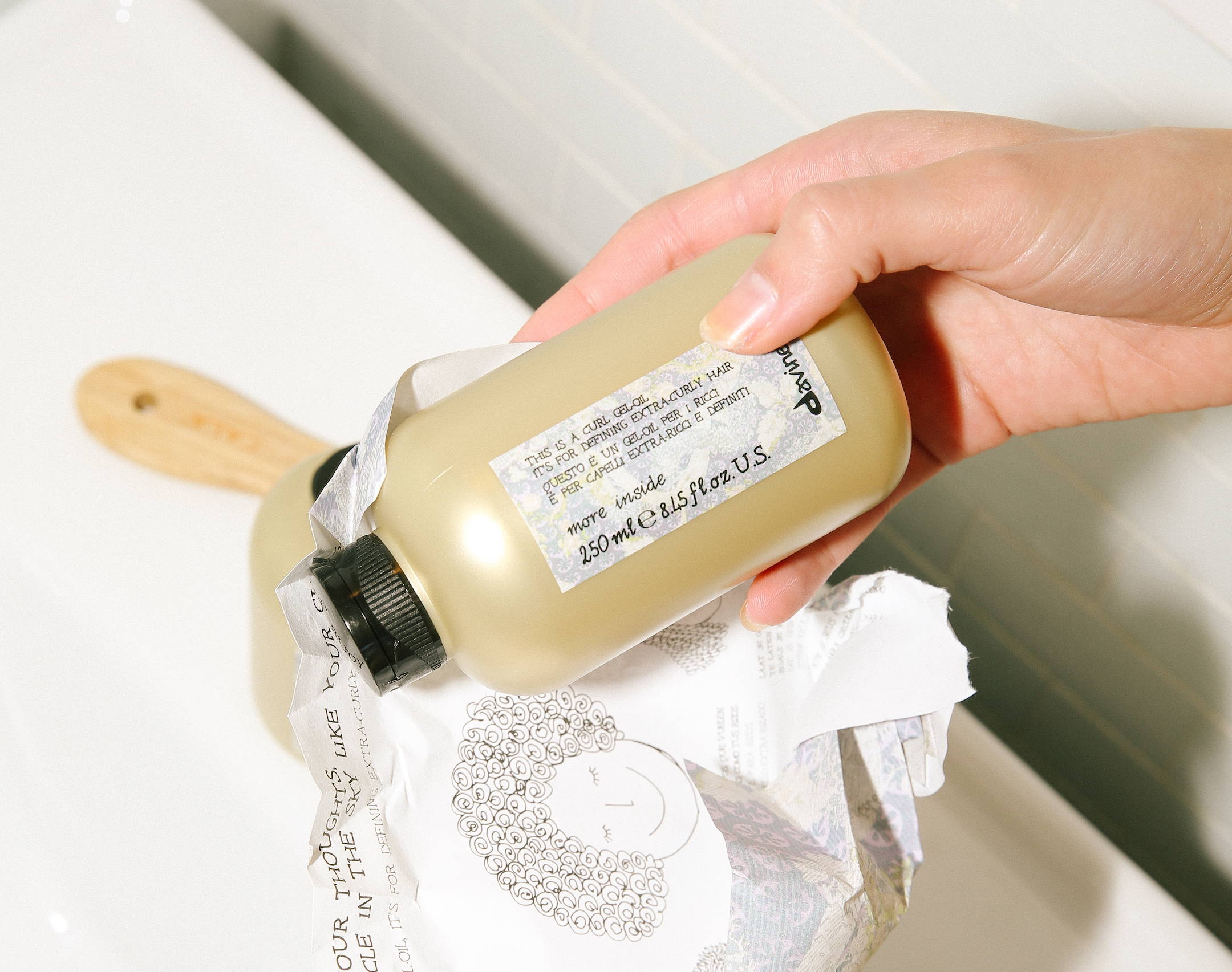Free Carbon Neutral Shipping On Orders $75+, Plus Free Samples!
Buy Now and Pay Later in 4-interest free installments with Klarna
Free Carbon Neutral Shipping On Orders $75+, Plus Free Samples!
Buy Now and Pay Later in 4-interest free installments with Klarna
Rendre la beauté durable
We Are Circular
Lien vers vos collections, vos ventes et même des liens externes.
Refer Your Friends and Get a Free Gift!
With its tight coils and sharp angles, 4C hair is the tightest and coarsest of all the curl types. The 4C hair type curl pattern is made up of super-tight zigzags that are densely packed. 4C curls are less defined than the other curl types, with strands ranging from very fine to super coarse. We love 4C natural hair, but we know that maintaining it can be intimidating, as 4C curls experience shrinkage and are prone to dryness and damage — especially when faced with chemicals or heat. If you’re a 4C curly girl or guy and you’re ready to upgrade your routine for hydrated, defined curls, this is your guide. We’re telling you how to care for your curly hair and giving you tips to keep your 4C hair happy ahead!
While 4C natural hair types can range and vary in terms of the tightness of the curl, coils are a major indicator that you have 4C hair. This hair type is made up of tightly-coiled, fragile strands with a zig-zag pattern that is sometimes discernible to the eye. In its raw state (freshly washed or without product) 4C hair does not have a defined curl pattern. Curls must be defined by twisting, braiding, or shingling. Some more defining qualities of 4C hair include:

4C hair types often struggle with excessive dryness, breakage, knots and frizzy hair. These are the most common solutions.
Shampoo strips your already-dry curls of their natural oils, leading to frizzy hair, so limit shampooing your hair to once or twice a month and opt for co-washing instead.
Natural 4C hair dries out so quickly because of its tightly coiled curl pattern. Deep conditioning your hair is a great way to add moisture back in. Lather your curls with a hair mask at least twice a week.
4C curls knot and tangle easily. Knots can be difficult to detangle, as well as painful as. Use a wide tooth comb and gently detangle it damp, after prepping with a leave-in conditioner. Start from your ends and work your way up to minimize breakage.
Breakage is another struggle for 4C hair types, but protective styles can help. Promote hair growth, while looking chic and protecting strands in hairstyles like braids and bantu knots.
When it comes to your type 4C hair steer clear of sulfates and isopropyl alcohol. Sulfates can strip your hair of its natural oils and isopropyl alcohol is drying. Over time, these ingredients will weaken your hair making it look dull, and become even more prone to breakage and split ends. Products tailored to 4C hair will work differently depending on your individual hair type so it's important to experiment with products to determine which ones work best for you. Here are a few of our favorites:
All in one shampoo and conditioner cleansing cream that gently removes impurities and makes the 4C hair extremely soft.
A mask with nourishing and conditioning power for softness, hydration and elastic, workable 4C curls.
This multi-function hair oil adds shine and softness to 4C curls while detangling and fighting frizz.
A cream for controlling curls with an anti-frizz effect for 4C hair. It defines the curl pattern leaving soft, elastic curls even in high humidity.
A transformative gel-to-oil formula that provides shape and definition.
This moisturizing leave-in milk makes untangling and styling 4C curls a breeze, with an anti-humidity effect and heat protection.

These are some of our favorite hair tips for styling and caring for 4C curly hair.
4C hair, like all curly hair types, is naturally dry. So it’s prone to becoming brittle, weak and can easily break, snap and feel like straw. A moisturizing hair routine is key. Starting with a moisturizing cleanser and conditioner.
One method that naturalistas find tried and true is the LOC method, which details the order products should be applied for bouncy, defined curls. The LOC method follows this order:
Heat styling (and chemical treatments) should be done sparingly on 4C hair. Instead rely on curl-defining products and styles to tame your frizzy hair. If you can’t avoid heat, prep your 4C strands with heat protection.
To combat frizz and breakage, you should gently detangle your strands regularly. But 4C hair is fragile. This means that even one rough detangling session can result in major breakage. Only detangle while wet and saturated in a product.
Sleeping on your 4C curls can be stressful on them as they snag and tug on the pillow while you move around. Protect them from this frizz-causing friction and minimize breakage by wrapping your hair in a silk scarf or a satin pillowcase to minimize while you sleep.
Ward off split ends and breakage by trimming regularly. Snipping your split ends every six to eight weeks helps to keep your 4C curls bouncy and defined, as will help you retain length. Even though you’ll technically be losing an inch or two, the end result will be longer and stronger hair.
Scalp care is a must no matter what your curl type, but it’s especially to those with 4c curls. Healthy hair starts with a balanced scalp, so incorporate a scalp scrub in your wash and co-wash routine. Follow your scrub with hair oil massaged into your scalp to keep it hydrated.
Your ends are the oldest part of your hair meaning it’s especially brittle.Keep your ends up and tucked in protective styles when you can. This allows them to grow without breakage. You can also oil them daily.

If you’ve got 4c hair and you’re struggling with your curls, tweak your current hair care routine to include our hair tips and product picks. Use only high quality moisturizing products like our hair masks and OI Shampoo on your 4C curls — and if you have any other care tips for your 4C hair, be sure to share with our community in the comments below.
by Jaclyn LaBadia, featured contributor
S’abonner pour rester à l’affut des ventes et promotions, les lancements de nouveaux produits et bien plus…
Abonnez-vous à notre newsletter pour bénificier de la livraison gratuite sur votre première commande.
La soumission de ce formulaire confirme que vous acceptez de recevoir les avis de lancement, les promotions et les nouvelles marketing de Davines North America Inc. par courriel.



Laisser un commentaire
Les commentaires sont approuvés avant leur publication.